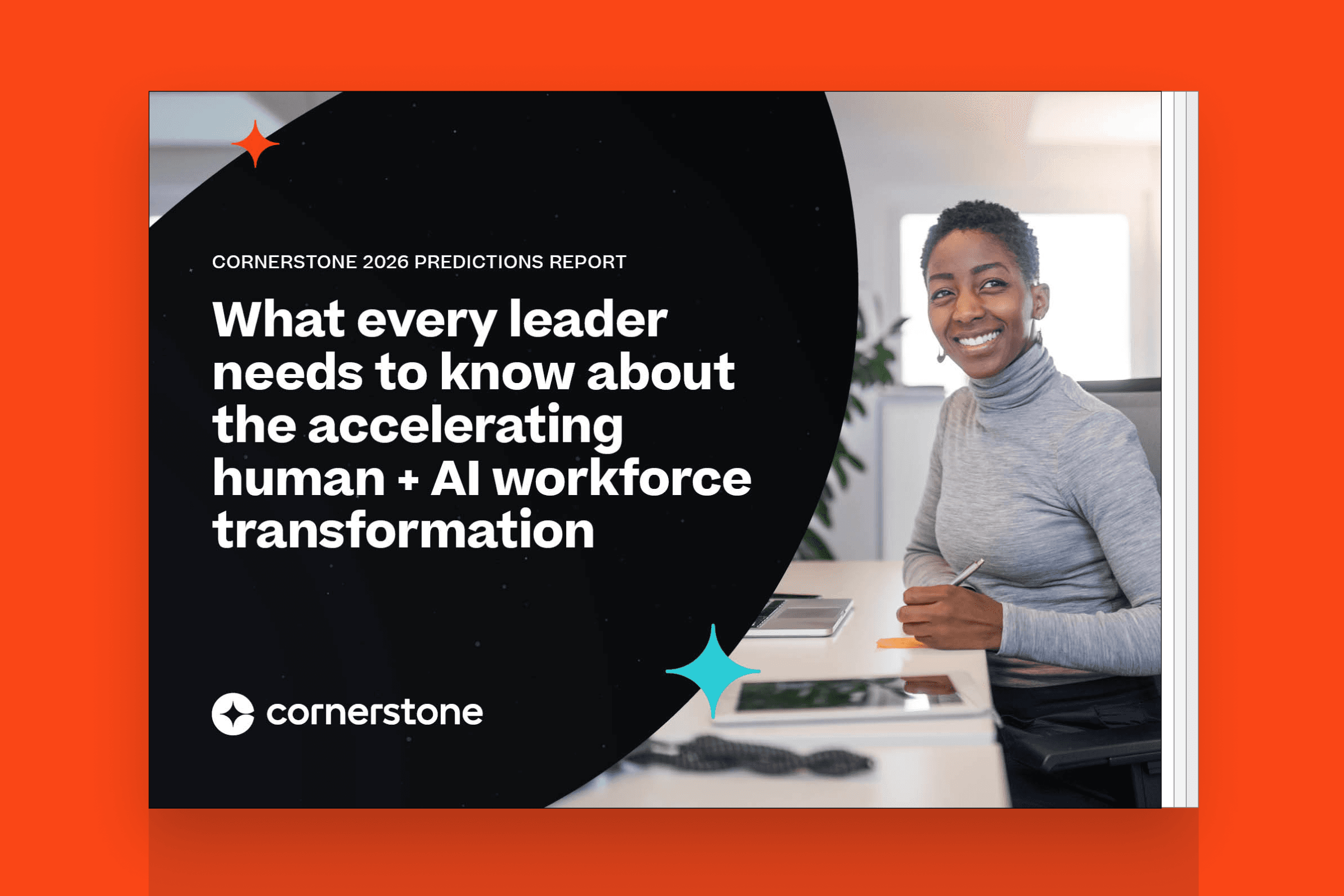Key Takeaways
- Frontline workers face training challenges due to job constraints and limited access to learning resources.
- Digital solutions enable flexible learning, using mobile devices, short modules, and multilingual content.
- Companies must foster continuous learning, offering structured support and career development opportunities.
With 2.7 billion people worldwide, the number of frontline workers – meaning those who do not work at a desk – is twice as high as the number of office employees, according to an estimate by Gartner. However, all workers are affected by the same challenges posed by the digital transformation, the major upheavals in many industries, and societal changes. Further training and learning must be provided on a greater scale than ever before.
Frontline workers in the new work era: are they the forgotten workforce?
Whether working in retail, warehouses, or logistics, frontline workers in Germany are too often overlooked. According to the State of Frontline Workforce 2023 report, over half of respondents thought about quitting their job during 2022. A lack of career opportunities was given as a reason by 40% of them, whereas 90% said that professional development opportunities would entice them to stay with the company.
Frontline workers often have less autonomy in their jobs and limited access to training resources. In addition, how their work is organized often means less time to participate in further training measures – machines cannot just be stopped in most workplaces, and employees cannot simply leave their positions. This makes it very challenging to provide time for learning, given that break times and the journey to work are not intended for learning purposes. Therefore, companies must think carefully about developing effective training programs for frontline workers that meet these needs while not encroaching on working hours.
Modern training for frontline workers
The latest digital solutions open new opportunities for further training of frontline workers. Online platforms, learning apps, and virtual training environments can make training resources more accessible and provide more flexibility for operational staff.
Ease of access is the key: The successful use of digital tools depends on flexible access, keeping in mind that frontline staff do not always have a work e-mail address. The solution is to provide a simple but effective log-in system using an employee ID number, an access code, or a QR code. These codes can easily be distributed on paper, or via WhatsApp or WeChat. In this way, valuable learning resources can be made available to all employees.
Mobile learning and flexibility: Employees should be able to access knowledge with flexibility ‒ regardless of location and from any device, whether mobile phones, tablets, or training PCs. This means that they can continue their development either directly at work or while on the move. The private use of smartphones for learning purposes should not be excluded either, even though employee representatives have conflicting views on this in different regions.
Concise and appropriate content: Considering that lengthy training courses are not practical for frontline workers, offering short, focused learning units that can be easily integrated into the daily work routine makes more sense. Short videos, checklists, and interactive elements support the rapid absorption of knowledge during short breaks, on the way to work, or in reserved time slots. The learning content should be offered in multiple languages to facilitate learning in each worker’s native language and to promote cultural diversity within the company.
Fostering a culture of continuous learning: It is essential to provide frontline workers with mandatory occupational health and safety training and compliance training. However, the real challenge lies in establishing a continuous learning and development culture. To achieve this, organizations must put change management on a firm footing and provide a comprehensive support structure. This includes, for example, allocating time slots for learning and appointing training guides to facilitate access to learning and find ways around any individual learning barriers. The desired outcome is that workers can achieve their personal goals through autonomous learning, and the company can foster a culture of continuous development.
Knowledge transfer at the DHL Group
An important principle for logistics company, DHL, is that employees can shape their career path. Tailored learning content is created with the help of artificial intelligence and advanced skills management. A central component of this approach is providing a learning environment in an employee experience app. Employees can access the learning content and continue their professional development while at the same time benefitting from the knowledge and experience shared by their colleagues. DHL supports this approach by using innovative solutions such as the Smart Connect platform. This platform, based on Cornerstone technology, allows employees to access learning from any location at a time that suits them and from their choice of a mobile device or a training PC. Offering concise, focused learning units that can be seamlessly integrated into the daily work routine, Smart Connect is an effective training tool that makes learning easy and convenient.
Target group-oriented learning at Mercedes-Benz
As a company headed toward a fully electric, software-based future, Mercedes-Benz places a particular emphasis on the continuous development of all its employees as part of its sustainable HR strategy. Mercedes-Benz offers its employees worldwide a varied range of self-driven and flexible learning opportunities on a Cornerstone platform – either for their current or for future job profiles. The platform bundles training offered from internal and external providers and can be accessed by employees on PCs or mobile devices. In addition, with efficient and target group-oriented management of this learning content, each qualification for an employee can be tailored to their individual wishes and needs.
Summary
A progressive learning environment for frontline workers opens the door to new training opportunities, but also shows that their important role within the company is appreciated and valued. The experiences gained during the COVID-19 pandemic underline the crucial contribution of every single machine operator, checkout assistant, and healthcare worker. A learning environment that considers the special needs and important role of frontline workers helps them remain competitive and keep their skills up to date. Intuitive operation, access on the go, tailored micro-learning modules, multilingual offerings, and cultural adaptation are the keys to life-long learning that is truly available to everyone.


